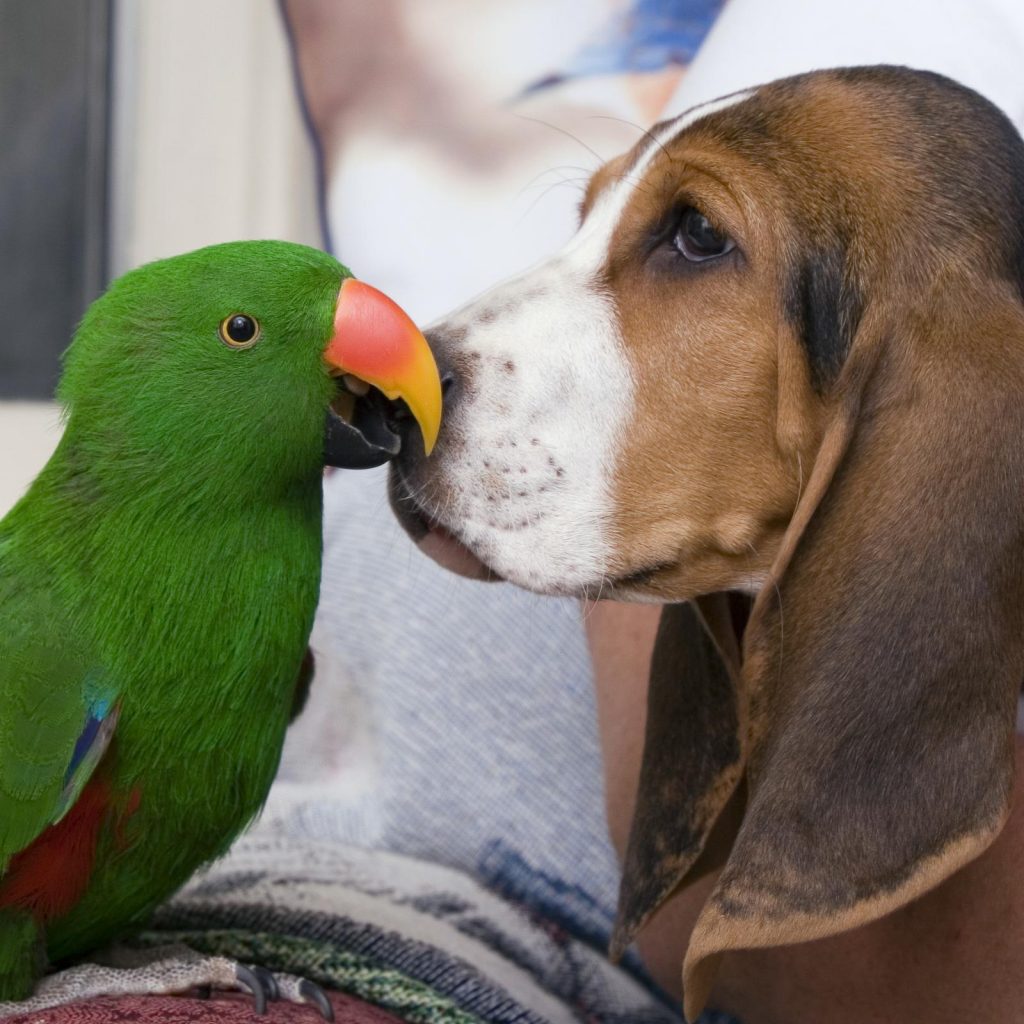
What does a pet sitter do?
Caring pet owners know that most pets adjust better to their owner’s absence and experience less anxiety and stress when they can remain in their home environments. Pet sitters make this possible with daily visits to your home. In addition to meals, exercise, playtime, and cleaning litter boxes or cages, professional pet sitters may also administer medications, walk dogs, and perform other pet-care duties. That’s why in-home pet care is the choice of pet owners and the “pet-preferred” method of vacation and travel care. Pet sitters may also provide vital home-care services while you are away, including mail or newspaper pick up, placing trash outside for pickup or rotating the lights and opening or closing the blinds to make your house look lived in. A professional pet sitter provides peace of mind for everyone.
Why should I hire a professional?
Professional pet sitters are just what the description implies – professional. While having friends, family, or neighbors care for your pets may seem like a logical choice, professional pet sitters do this for a living and have the experience necessary to care for your animals. All of our members are insured and collect sales tax. This means that you can trust us to act responsibly when we enter your home. Since this is our job, you can count on us to be there.
What are the advantages for my pet?
- Reduced Stress. Your pet stays in its own familiar secure environment where all the sights, smells and sounds say “Home!”
- Diet and Exercise. Customary diet and exercise routines are followed, with no interruption to upset your pet.
- No “Travel Trauma.” Travel in a vehicle to boarding facility or kennel may upset your pet.
- Health Concerns. With a pet sitter, there is minimal exposure to illness of other animals.
- TLC. Most importantly, your pet receives love and personal attention while you are away.
What are the advantages for me?
- Travel. You won’t be inconvenienced or upset by transporting your pet.
- No Imposition. You don’t have to impose on a friend, neighbor or relative to care for your pet, but instead rely on a pet care professional who will put your pet’s needs first.
- Security. Your home is made more secure by the crime deterrent services provided by most pet-sitting services.
- Peace of Mind. While you’re away, you can feel confident your pet is in capable, caring hands.
- Special Services. Pet sitters can provide additional home services while caring for your pet, such as bringing in the mail and newspaper.
How do I prepare my home and pets for a pet sitting service?
Preparation can make a big difference in how smoothly things go for your pet when the pet sitter comes to visit. Here are some tips:
- Call your pet sitter before you leave town to confirm travel dates and contact information while you are away.
- Make sure the pet sitter has a phone number where you can be reached, as well as a local emergency contact number.
- Provide the pet sitter with a house key. If you wish to provide a garage door opener, give the sitter a back up key as well, just in case of a power outage. If you have new keys made, try them out to make sure they work.
- Make sure to test the alarm system, and provide your pet sitter with both the keypad code, as well as the spoken password, in case of a false alarm.
- Clean litter box(s) and food / water dishes before leaving town.
- Provide extra food, litter and other supplies just in case you’re not able to return when planned.
- Clean out the refrigerator to avoid smelly food spoilage and wash the dishes in the sink to prevent ants, flies or other pests.
- Adjust the thermostat to keep the house comfortable for the pet during your absence. In warm weather, a closed-up house can get dangerously hot in a short time.
- Leave a list of phone numbers in case the pet sitter needs to contact service or maintenance companies while you are away; i.e., plumber, electrician, cleaning service, yard maintenance, pool service, etc.
- Tell the pet sitter of any household areas that are off-limits to your pets or to the pet sitter. Secure access to those areas before leaving home.
What can I do to help my pet sitter take the best care of my pets?
You can help your pet sitter be a better friend to your pet by making sure there are no problems while you are away. Planning and preparation in the following areas will smooth the way:
- Tell the pet sitter about all health problems your pet may have—major or minor, past or present.
- Provide written verification that your pet is up to date on its vaccinations.
- Make sure your dog’s collar fits—Otherwise he may slip out of a too-large collar while being walked.
- If your dog is not accustomed to walking on a leash, practice with him before you leave.
- Make a list of your pet’s favorite hiding places. This will prevent the pet sitter from worrying if your pet is not where expected—the sitter will know where to look.
- Provide your own preferred method of flea control, even if your pets are currently flea free. Fleas multiply rapidly and can become a problem very quickly.
- If you own both dogs and cats, do not ask the sitter to care for the dogs and “just ignore the cats;” in order to save a few dollars. A sitter’s professionalism, ethic responsibility and conscience would not allow the oversight of a cat in need of food, medical care or human attention.
- If your dog growls or snaps at a pet sitter during a “get-acquainted visit,” understand that the pet sitter may ask that you make other arrangements for your dog’s care during your absence.
- Be honest about your pet’s quirks, i.e. a dog that is nervous about having his leash put on, or a cat that does not like to be petted. The more your pet sitter knows, the better equipped she is to care for your pets.
How much should I tip my pet sitter?
While pet sitters appreciate a tip it isn’t absolutely necessary. Pet sitters care for your pets with a great deal of love, and frequently go “above and beyond” the call of duty. If you were provided with great service, it is appropriate to tip your pet sitter 10-20% of the total bill.
When is it not appropriate to hire a pet sitter?
There are some cases where pet sitting may not be the best alternative for your pet. Here are some examples.
- Most pet sitters are able to give your pet basic oral medication, and many can administer insulin injections. Some pet sitters can give sub-coetaneous fluids as well. If your pet is in failing health, or requires more intensive care, we would suggest boarding your pet at your vet’s office, which can provide 24 hour care.
- If your pet is aggressive, or doesn’t react well to visitors or strange people entering your house, it would be best to board your pet.
- If your pet gets very destructive in your absence, or suffers from severe separation anxiety, he or she may be better off at a boarding kennel around other dogs and people.
